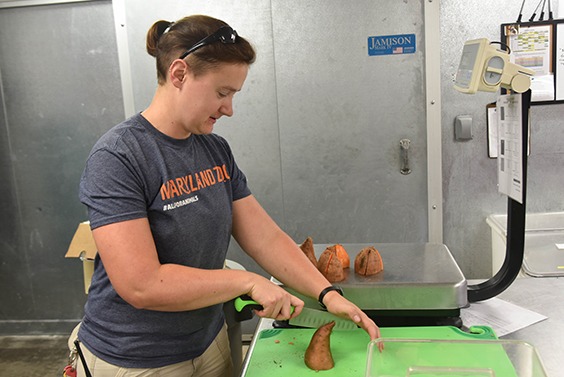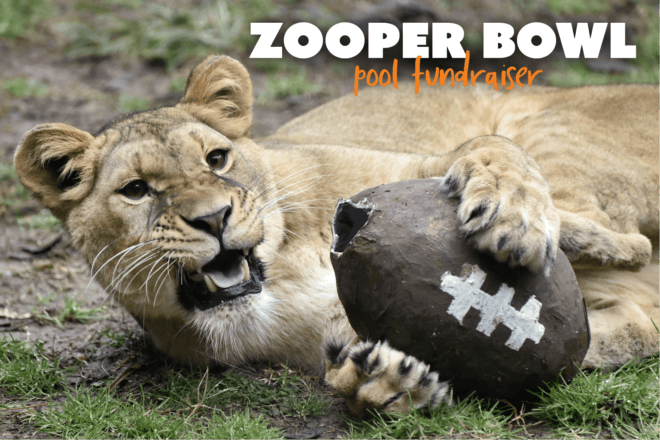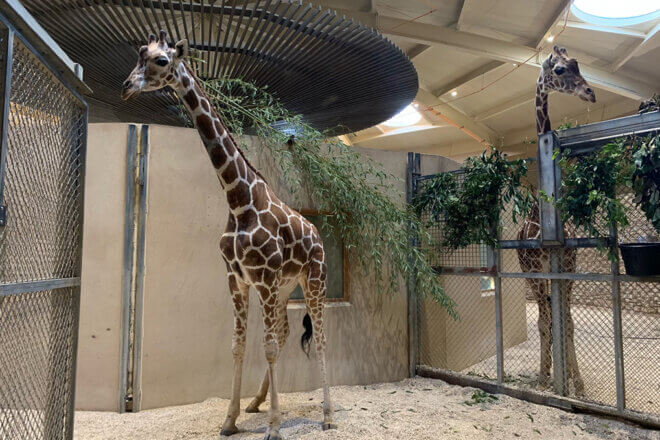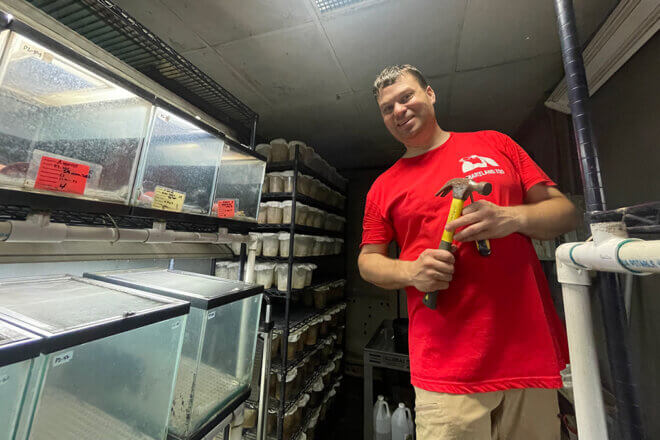National Zoo Keeper Week
It’s National Zoo Keeper Appreciation Week and we’re celebrating the amazing work our zookeepers do for wildlife every day. They are the dedicated keepers, teachers, and caretakers of the animals here at the zoo. They are also some of the most Passionate hardworking people you’ll meet. The Maryland Zoo is fortunate to have expert teams of animal professionals focused on the care of more than 200 species big and small. We’re so grateful for their knowledge, expertise, and commitment which continues to advance animal husbandry and wildlife conservation here and around the globe.
This year, National Zoo Keeper Week is July 16-22. Each day we’ll share new keeper profiles and introduce you to the people making a difference for animals at the Maryland Zoo.
Meet Moriah W.
What area of the zoo do you work in and with what animals do you work?
I work in the commissary of the zoo, while I do not directly work with any of the animals I indirectly work with all of them.
How long have you been working at the zoo?
I have been working at the zoo for about ten months.
Why did you choose to work at the zoo?
I chose to work at the zoo because it was an AZA accredited institution that would help me further my career as a keeper.
What is a typical work day like at the zoo?
A typical work day at the commissary starts at 6:30 in the morning where we prepare meat/fish diets and empty various animal waste dumpsters. We then deliver diets to different areas of the zoo. After this, produce diets are prepped for the following day and hay is delivered to specific areas of the zoo. For the rest of the day, we fill orders, make sure that everything is up to USDA standards, and restock inventory.
Is it hard to work at the zoo and why?
On a normal day it is not very challenging but dealing with nutrition we have to be quick in responding to certain needs which can be challenging at times.
When did you first start thinking about working in a zoo?
I first started thinking about working in a zoo when I had my first summer job working at a small zoo when I was 19, but before that, this career was not ever on my radar.
What steps did you take in order to become a keeper at the zoo?
The steps I took included gaining my bachelor’s’ degree in animal science, working summers at my local zoo, interning at a zoo in Massachusetts, working as the animal care coordinator at a sanctuary in Florida and becoming a seasonal keeper at Zoo in Wisconsin.
What type of person or what skills make for a good keeper?
The type of person who makes a good keeper is one who loves to do hard work and has the skills to work well with animals as well as people.
What was your favorite subject in school and why?
My favorite subject in school was history due to the fact I grew up in a region that played a large part in the revolutionary war and I found it fascinating to actually see places where so many important events happened.
What hobbies/interests do you have outside of your zoo life?
My hobbies outside of zoo life include anything outdoors; hiking, camping, kayaking, and archery.
Have you done any unique conservation, research, or professional development experiences related to your work at the zoo?
I am a member of the local AAZK chapter that has hosted several professional development lectures.
What do you think is an important reason to support the zoo?
It is important to support the zoo because the zoo is a nonprofit that is dedicated to the conservation of these animals and their environments.






Share this article